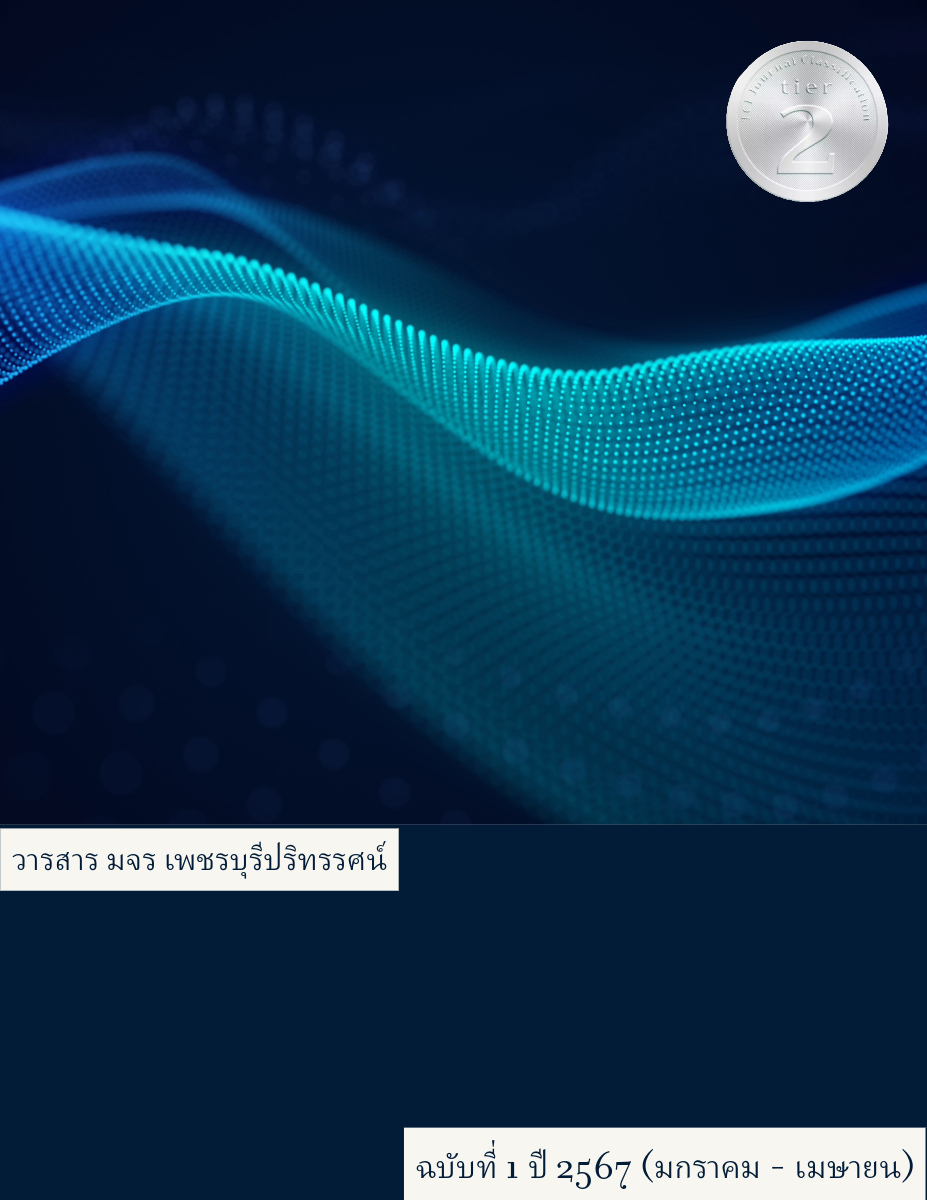THE DEVELOPMENT LEARNING ACHIEVEMENT IN SCIENCE AND SCIENTIFIC REASONING BY USING SOCIOSCIENTIFIC ISSUES BASED-LEARNING FOR STUDENTS IN ELEMENTARY 6
Main Article Content
Abstract
The aims of this research were to 1) compare learning achievement of elementary 6 students after learning management using socioscientific issues based-learning compared to the 70% criteria, 2) compare scientific reasoning abilities of elementary 6 students after learning management using socioscientific issues based-learning compared to the 70% criteria, 3) study learning behavior of elementary 6 students receiving socioscientific issues based-learning, and 4) study elementary 6 students’ satisfaction toward the socioscientific issues based-learning. The research results were as follows: 1. Science achievement of elementary 6 students after learning socioscientific issues based-learning, compared to the 70% threshold, the average score after school was statistically significantly higher than the 70% with statistical significance at the .05 level. 2. Comparison of the scores of scientific reasoning ability of elementary 6 students after organizing socioscientific issues based-learning compared to the 70% threshold, the average score after studying was statistically significantly higher than the 70% with statistical significance at the .05 level. 3. Learning behavior of elementary 6 students who are managed to learn using issues Science-based society see Students can connect their knowledge and experiences, analyze their reasoning, and draw conclusions. By integrating knowledge until knowledge can be discovered by oneself. Apply knowledge This results in higher academic achievement and scientific reasoning abilities. 4. Elementary 6 students Satisfaction with socioscientific issues based-learning, it was found that students prefer to organize learning using science-based social issues as they are linked to daily life.
Keywords : reasoning ability, socioscientific issues based-learning
Article Details

This work is licensed under a Creative Commons Attribution-NonCommercial-NoDerivatives 4.0 International License.
References
กระทรวงศึกษาธิการ. (2560). ตัวชี้วัดและสาระการเรียนรู้แกนกลาง กลุ่มสาระการเรียนรู้วิทยาศาสตร์ (ฉบับปรับปรุง 2560) ตามหลักสูตรแกนกลางการศึกษาขั้นพื้นฐาน พุทธศักราช 2551. กรุงเทพมหานคร: นายโชคดี ออสุวรรณ.
กระทรวงศึกษาธิการ. (2563). พระราชบัญญัติการศึกษาแห่งชาติ พ.ศ. 2542 เรียกใช้เมื่อ 9 มีนาคม 2567 จาก https://citly.me/trVMB
กีรติกา อินทร์ชัย. (2564). การวิจัยเชิงปฏิบัติการในการจัดการเรียนรู้โดยใช้ประเด็นทางสังคมที่เกี่ยวเนื่องกับวิทยาศาสตร์ที่มีต่อผลสัมฤทธิ์ทางการเรียนและการคิดอย่างมีวิจารณญาณ. วารสารวิชาการศึกษาศาสตร์ ศรีนครินทรวิโรฒ, 22(2), 1-18.
พงศ์กรณ์ พันธุ์โยศรี. (2558). ผลของการเรียนรู้ตามแนวคิดประเด็นทางวิทยาศาสตร์และสังคมที่มีผลต่อความสามารถในการรู้สิ่งแวดล้อมของนักเรียนมัธยมศึกษาตอนต้น. วารสารอิเล็กทรอนิกส์ทางการศึกษา, 11(2), 336-350.
พิชญา ศิลาม่อม. (2561). ผลการเรียนรู้โดยใช้ประเด็นทางสังคมที่เกี่ยวเนื่องกับวิทยาศาสตร์เป็นฐานที่มีต่อความสามารถในการให้เหตุผลเชิงวิทยาศาสตร์ของนักเรียนมัธยมศึกษาตอนต้น. ใน (ครุศาสตรมหาบัณฑิต สาขาวิชาหลักสูตรและการสอน). คณะครุศาสตร์ จุฬาลงกรณ์มหาวิทยาลัย..
ศศิเทพ ปิติพรเทพิน. (2558). การจัดการเรียนรู้วิทยาศาสตร์กับสังคมแห่งศตวรรษที่ 21. กรุงเทพมหานคร: บอสส์การพิมพ์.
สำนักงานเลขาธิการสภาการศึกษา. (2560). แผนการศึกษาแห่งชาติ พ.ศ.2560-2579. กรุงเทพมหานคร: พริกหวานกราฟฟิก.
สุดารัตน์ อะหลีแอ. (2558). ผลของการจัดการเรียนรู้โดยการสืบเสาะหาความรู้ (5Es) ที่มีต่อความเข้าใจธรรมชาติของวิทยาศาสตร์ ผลสัมฤทธิ์ทางการเรียน และเจตคติต่อวิทยาศาสตร์ของนักเรียนชั้นประถมศึกษาปีที่ 6. ใน (วิทยานิพนธ์ศึกษาศาสตรมหาบัณฑิต สาขาวิชาหลักสูตรและการสอน) บัณฑิตวิทยาลัย มหาวิทยาลัยสงขลานครินทร์.
Zeidler D. L. et al. (2009). Socioscientific Issues: Theory and Practice. Journal of Elementary Science Education. Bioedukasi, 21(2), 49-58.
Lawson . (2010). Basic inferences of scientific reasoning, argumentation, and discovery. Science Education, 94(2), 336–364.
Thyer. (2012). Quasi-Experimental Research Designs. New York : Oxford University Press.


